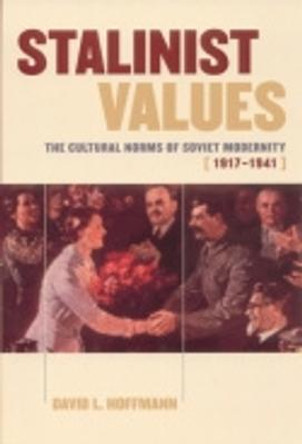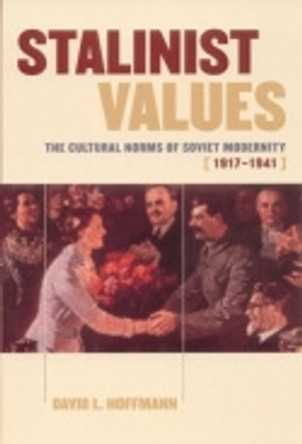Description
Under Stalin's leadership, the Soviet government carried out a massive number of deportations, incarcerations, and executions. Paradoxically, at the very moment that Soviet authorities were killing thousands of individuals, they were also engaged in an enormous pronatalist campaign to boost the population. Even as the number of repressions grew exponentially, Communist Party leaders enacted sweeping social welfare and public health measures to safeguard people's well-being. Extensive state surveillance of the population went hand in hand with literacy campaigns, political education, and efforts to instill in people an appreciation of high culture. In Cultivating the Masses, David L. Hoffmann examines the Party leadership's pursuit of these seemingly contradictory policies in order to grasp fully the character of the Stalinist regime, a regime intent on transforming the socioeconomic order and the very nature of its citizens.
To analyze Soviet social policies, Hoffmann places them in an international comparative context. He explains Soviet technologies of social intervention as one particular constellation of modern state practices. These practices developed in conjunction with the ambitions of nineteenth-century European reformers to refashion society, and they subsequently prompted welfare programs, public health initiatives, and reproductive regulations in countries around the world. The mobilizational demands of World War I impelled political leaders to expand even further their efforts at population management, via economic controls, surveillance, propaganda, and state violence. Born at this moment of total war, the Soviet system institutionalized these wartime methods as permanent features of governance. Party leaders, whose dictatorship included no checks on state power, in turn attached interventionist practices to their ideological goal of building socialism.
About the Author
David L. Hoffmann is Professor of History at The Ohio State University. He is the author of Stalinist Values: The Cultural Norms of Soviet Modernity, 1917-1941 and Peasant Metropolis: Social Identities in Moscow, 1929-1941, both from Cornell. He is also the editor of Russian Modernity: Politics, Knowledge, Practices and Stalinism: The Essential Readings.
Reviews
Cultivating the Masses is a major contribution to an ongoing effort to place the interwar history of the Soviet Union in comparative, transnational, and transcultural perspective according to the central assumptions of this paradigm.... This book is a meritorious contribution to that ongoing conversation.
-- Glennys Young * Russian Review *David L. Hoffmann offers a powerful counterweight to... simple (and self-exonerating) explanations in the first major comparative assessment of Soviet socialism in its turbulent foundational decades.... Hoffmann has presented an ambitious survey of Soviet state practices that deserves an audience in all fields of modern world history. Even if some might dispute his largely structuralist interpretation of the system's most infamous abuses, they will be hard pressed to ignore the abundance of evidence he presents of influences common to the transition to modernity. His prose is lucid, and the comparative approach and chronological scope of this monograph make it an attractive choice for the classroom.
-- T. Clayton Black * The NEP Era: Soviet Russia 1921-1928 *For well over a decade now a major debate in Soviet historiography has centered on Bolshevik Russia's suspected participation in a happening called modernity, a happening that is as exciting to attend as it is difficult to locate.... Hoffmann's Cultivating the Masses is the latest book-length contribution to this debate; it testifies to the tenacity of the problematic, while raising doubts as to its continuing fecundity. The research behind Hoffmann's historical narrative is impeccable throughout... and his handling of non-Russian contexts is truly impressive in its breadth.
-- Petre Petrow * Slavic and East European Journal *In Cultivating the Masses, David L. Hoffmann argues that the Soviet Union under Lenin and Stalin was not an anomaly in European history-rather, it was one variant of that continent's broader experience with industrial modernity. A challenging thesis, this contention leads Hoffmann not only to reject the popular view that the USSR followed a unique, Sonderweg-like historical trajectory but also to cast doubt upon more routine claims that Soviet state policy development was essentially sui generis, proceeding according to an insular, domestically determined agenda.... A fascinating study, Cultivating the Masses deserves to be widely read.
-- David Brandenberger * The Journal of Modern History *Book Information
ISBN 9780801446290
Author David L. Hoffmann
Format Hardback
Page Count 344
Imprint Cornell University Press
Publisher Cornell University Press
Weight(grams) 907g
Dimensions(mm) 235mm * 155mm * 27mm








